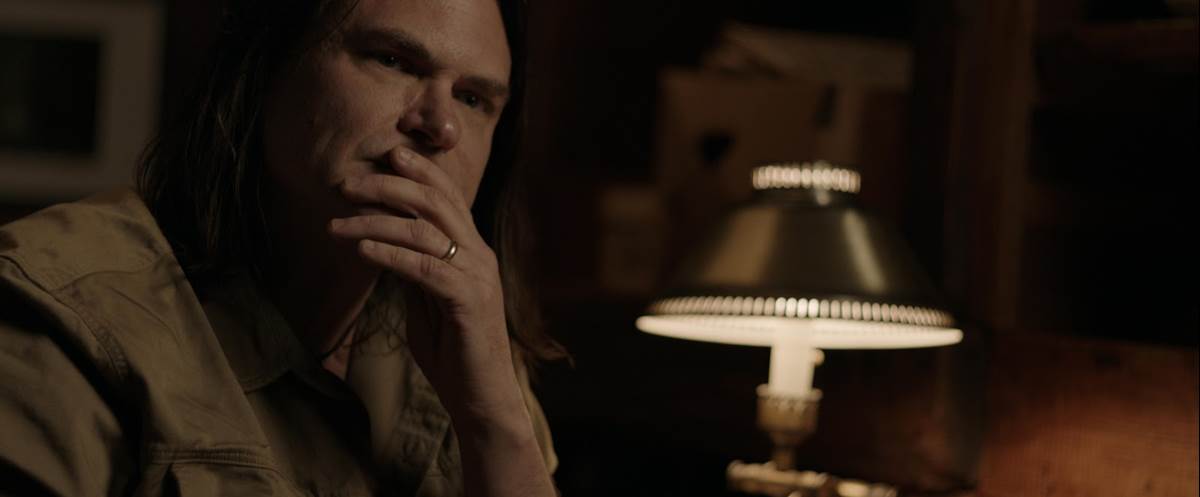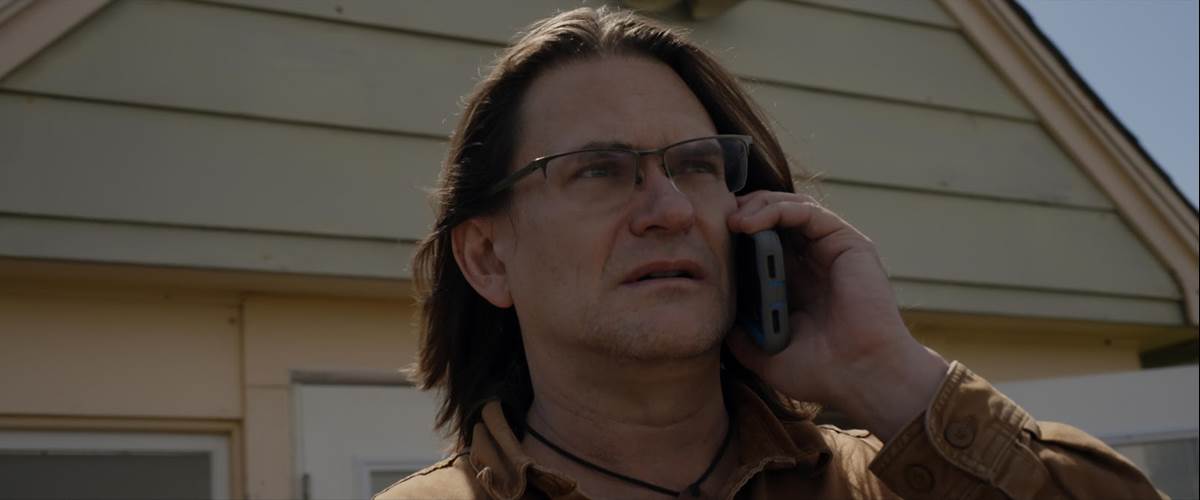SXSW Event Recap: “Weed, Murder & Bigfoot: A Conversation with the Team Behind Hulu’s Sasquatch”
Hulu’s three-part documentary series Sasquatch may not start streaming until April 20th, but guests at the online South by Southwest (SXSW) festival got to see the first episode over a month early. In celebration of the screening, director Joshua Rofé was joined by investigative journalist David Holthouse and producer Mark Duplass to discuss the project’s origins. What follows is a recap of an event called “Weed, Murder & Bigfoot: A Conversation with the Team Behind Hulu’s Sasquatch.”

(Hulu)
Following production on the Amazon Prime documentary series Lorena, Joshua Rofé was in search of his next documentary subject and looking for something that viewers couldn’t easily find answers to online. When a friend recommended a podcast called “The Sasquatch Chronicles,” he found himself binge listening. While he doesn’t necessarily believe in bigfoot, the visceral fear exemplified by each caller on the show made him want to do something on the topic. That’s when he sent what he presumed would be received as a crazy text to his colleague David Holthouse, who he’d been working with for a number of years. To his surprise, he got a quick response from the investigative journalist saying he had just the thing. “I’m friends with a few journalists and one thing I noticed is they all have this rolodex of wild stories that lay dormant in their minds and if you say something that sparks in them, they come alive with a satiable appetite to tell a story,” the director revealed.
As the only member of the trio who appears in the documentary series, David Holthouse’s bigfoot story goes back to 1993 when, while visiting a friend at a marijuana farm in Mendocino, two men came running into their barn at night full of fear, recounting that they discovered a crime scene where three men had been torn limb from limb, the crops surrounding them torn apart but not taken, and large bare foot tracks surrounding them. But as viewers will learn, David never saw the crime scene with his own eyes and nearly three decades later, all that’s really left is hearsay and an urban legend.
As a fan of Wild Wild Country, a film produced by the Duplass Brothers, Josh contacted Mark and soon he and David were sitting in his black attic office space, a pitch meeting that Mark shared felt like sitting around a campfire listening to a ghost story. “We could feel the energy of it and despite all of my education and all of my cynicism, there’s something about the lore… that’s related to something deeper in all of us,” the producer explained. “You want to believe, you want to lean into it.”
In the film, David Holthouse talks about some of his most daring investigative adventures, but in this discussion, he reveals that he was no longer the same person he was when he first visited Mendocino in 1993. “I immediately got back in touch with how sketchy that part of California was,” he shared, adding that it almost feels more nefarious now. “This is a story I first heard when I was a very different person… I had a pretty gnarly self-destructive streak… and that’s no longer the case, but I put myself in some very dangerous places in the making of this show. It was like revisiting my past self.”

(Hulu)
Filming over the course of a year, David was really the expert in the field and oftentimes had to go rogue to get the job done. “David would go places alone where you cannot bring a camera,” Joshua revealed about parts of the shoot where he as the director couldn’t accompany his investigative journalist. “There is no amount of documentary filmmaker show business savvy with talking to people that gains you access. There’s no one that you can convince that they should let you film something.” The director would often be waiting for a text or call from David confirming that he made it back safe from a lead and at one point, with so many alleged criminals refusing to talk, it was looking like the story they were chasing was a dead end.
During an edit that took 10-months, some of which coincided with filming, the team was worried about how long or short their project would end up. “Hulu was a very nice partner to us,” David explained, having previously agreed to 3 episodes. “There was a point where this could’ve wanted to be shorter or much longer and they ended up supporting us in that journey.”
The show may be called Sasquatch, but as the title of this live event suggests, it’s also about weed and murder. “We didn’t set out to explore the darkest parts of humanity in a particular place,” the director added, going back to his original intentions for lighter fare about an alleged murder by a bigfoot creature. “We didn’t set out to discover things in the realm of socioeconomic disadvantage, racism, I can go on and on. The more that David dug in, the more that we all pushed. All of these real world things suddenly started to invade our alleged sasquatch murder mystery. It made everything richer and more frightening.”
“These stories, they start taking on a life of their own and they start driving themselves in a direction,” Mark added about the unexpected shape the series took. “There comes a point where you lose what you thought the story would feel like… We all thought that this was going to be a little bit different than it became and we all thought the sasquatch nature and the envelope it was encased in would have a little more, dare I say, frivolity.” A call David received that contained vital information they had been seeking almost came too late, with the show already in editing. “David was the one who was brave enough and bold enough to go follow it and it was what it became.”
You can catch every hair-raising moment of Sasquatch when it starts streaming April 20th only on Hulu.
